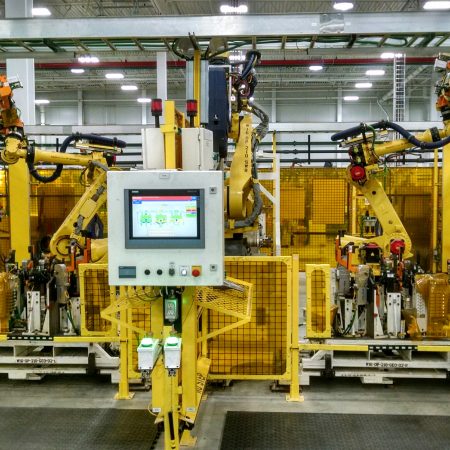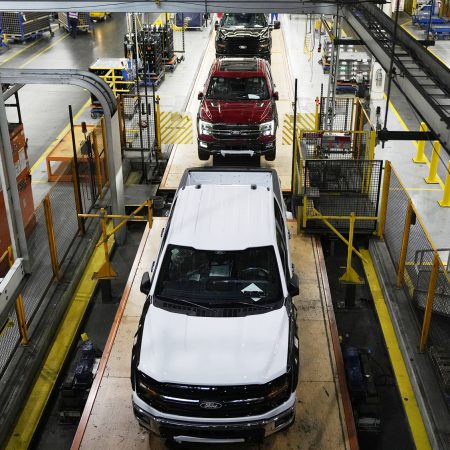MichMash: How Trump auto tariffs impact Michigan; John James joins gubernatorial race + more
Michigan U.S. Rep. John James is the latest major candidate to enter the state’s gubernatorial race. As a part of the weekly series, MichMash, Gongwer News Service’s Zach Gorchow and Alethia Kasben discuss the Republican candidate’s chance of becoming the next governor of Michigan. They also discuss Gov. Gretchen Whitmer’s recent visit with President Donald Trump in the Oval Office.
Then, Glenn Stevens, executive director from MichAuto at the Detroit Regional Chamber, makes a pit stop and talks to the team about the recent tariff news.
Subscribe to MichMash on Apple Podcasts, Spotify, NPR.org or wherever you get your podcasts.
In this episode:
- What inspired Congressman John James to run for governor of Michigan
- Whitmer’s Oval Office meeting with Trump
- How the Trump administration tariffs are affecting Michigan’s auto industry
President Trump’s tariffs have affected many industries all over the country and around the world, including in Michigan.
Stevens said that Trump’s 90-day pause on tariffs are good for the economy, but the 25% tariffs on the auto industry that remain have caused a lot of uncertainty.
“The tariffs that are in place of imported vehicles, — imported components, the steel and aluminum tariffs — those are still in place,” he said. “So we’re still in it in regard to the challenges in our industry.”
Other factors, like changes made during the pandemic and the national focus on growing the electric vehicle market, have also contributed to the volatility facing Michigan’s auto industry, Stevens said. And that can translate to higher prices for consumers.
“If tariffs persist, we are absolutely going to see an increase in vehicle prices. The reason for that is because the input costs stack up to the supply chain as you build the components up to the assembly plant, and a lot of cost is being added to the system,” Stevens said. “That either has to be absorbed by the companies — and that means profits are going to take a hit — or it’s passed along, and I think inevitably we’re going to see it passed along.”
–WDET Digital Editor Jenny Sherman contributed to this report.
More from WDET:
- WATCH: Whitmer delivers policy address in DC, meets with Trump
- Analyst: Trump tariffs mean recession is likely for Michigan, Ontario
- Rep. John James seeks GOP nomination for Michigan governor
Support the podcasts you love.
One-of-a-kind podcasts from WDET bring you engaging conversations, news you need to know and stories you love to hear.
Keep the conversations coming. Please make a gift today.
The post MichMash: How Trump auto tariffs impact Michigan; John James joins gubernatorial race + more appeared first on WDET 101.9 FM.

